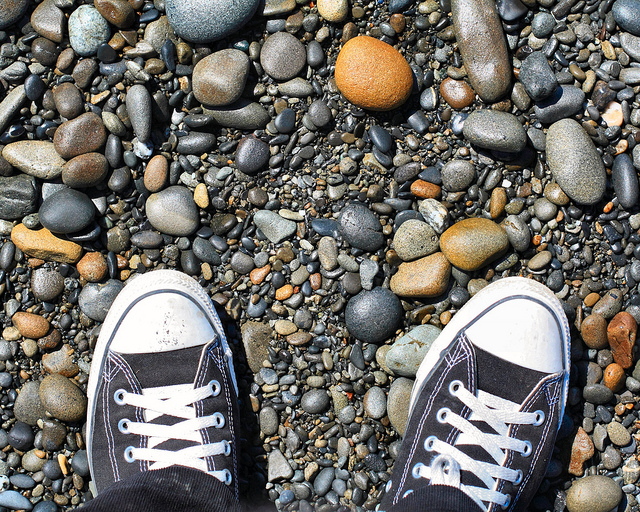
Source: POV: Shoes On The Beach, Ian Crowfeather, Flickr
Are you wearing shoes? Right now, right this minute, do you have shoes on or not?
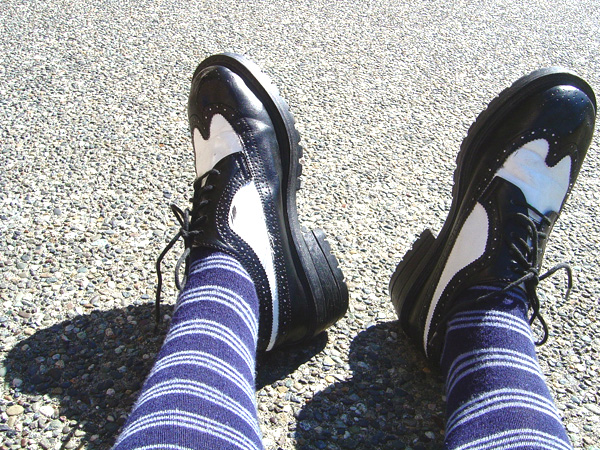
Source: cheap shoes, zephyrbunny, Flickr
Some people will say you should be wearing shoes. Some people will say you should be going barefoot.
Who’s right?
Any reasonable person would answer, “It depends.” Whether you should wear shoes depends on where you are. It depends on what is allowed. It depends on what you feel like doing.
In other words, it depends on your perspective.
For some people, the most important thing is to have a spiritual connection with nature. That is one way to look at this issue. What is more spiritually connecting, shoes or bare feet?
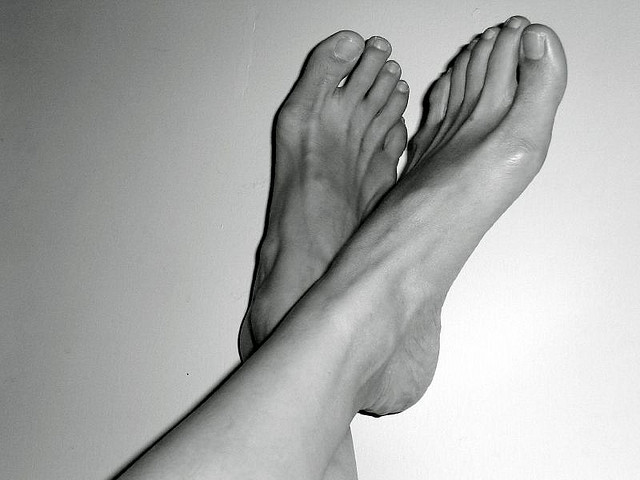
Source: sometime, I just have to put my feet up., t na, Flickr
For some people, the most important thing is to be comfortable. That is another way to look at this issue. What is more comfortable, shoes or bare feet?
For some people, the most important thing is to be health conscious and health cautious. That is yet another way to look at this issue. What is healthier, shoes or bare feet?
For some people, the most important thing might be to go into a restaurant without getting thrown out for not wearing shoes. That is one more way to look at this issue (and there are lots more). What is more likely to get you thrown out, shoes or bare feet?
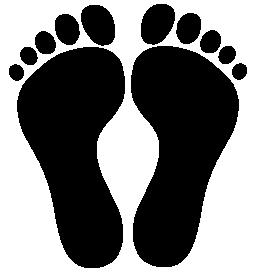
Source: 2 parallel footprints, Martiny, Wikimedia
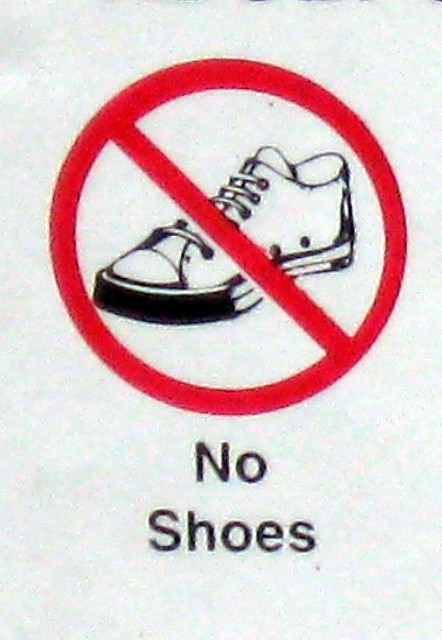
Source: Restrictions, Diana Beiderman, Flickr
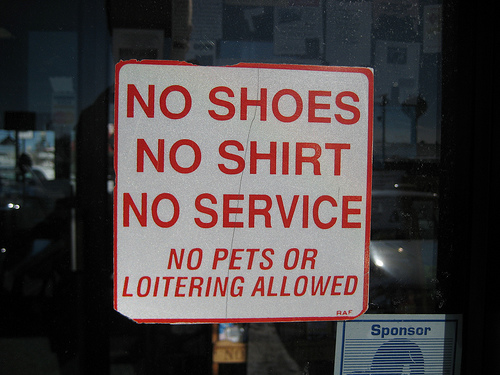
Source: ??
Any author who makes a case either for or against going barefoot is going to use evidence to support a view on the issue. The author is also going to argue the issue from a particular perspective—for example, spiritual connection, comfort, health, or social appropriateness.
(On the other hand, an article about this issue that is written to be informational will probably consider several different perspectives without treating one as more important than the others.)
When you read an argumentative essay or article, you should analyze the author’s evidence. However, you can’t analyze the evidence a writer gives in support of a position if you don’t know the author’s perspective.
Look at a few statements about going barefoot versus wearing shoes to see if you can figure out the perspective of several different authors. Keep in mind that the perspective is not related to whether the writer is for or against a position on the issue; the perspective is related to the aspect of the issue that is most important to the author. Click to choose your answer to these questions about perspective.

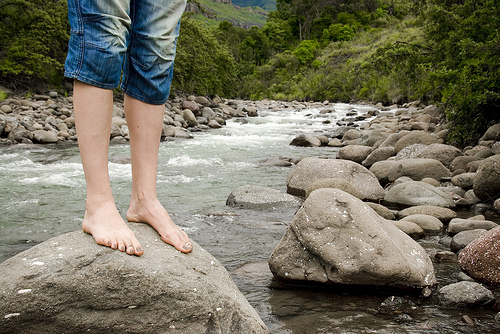
Source: South_Africa_Dec_10_104, Jason Jones, Flickr
In the rest of this lesson, you will be looking for the perspective of the author who is making the argument; then you will be analyzing the evidence the author uses to support that argument. As you work through the lesson, you may realize that you can be convinced by an author’s evidence while disagreeing with the overall argument because you don’t share the same perspective on the issue.
You could, for instance, agree that going barefoot “puts you in touch with the universe” but still think that people should wear shoes because avoiding injury is, to you, more important than feeling a universal connection. On the other hand, you may feel that being “in touch with the universe” is more important than “fitting in”; you might agree that going barefoot will meet with rejection at most restaurants but still feel it’s better to go barefoot.